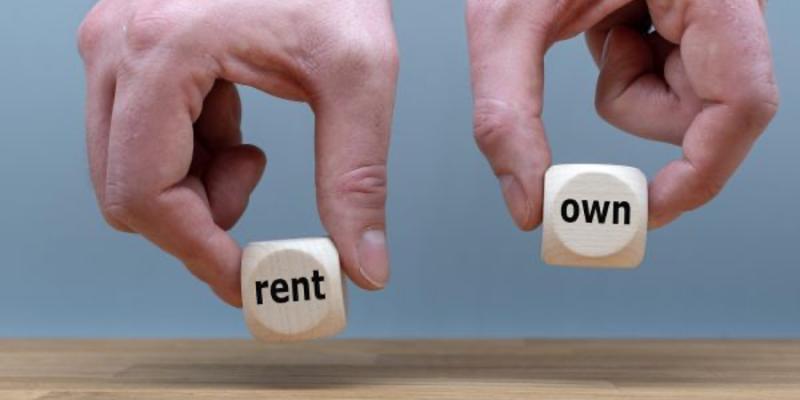Is Renting-to-Own a Good Fit for Me in Northeastern Wisconsin?

Current affordability challenges in the real estate market have some buyers looking for creative solutions. One of the most popular strategies for home buyers right now is choosing a more affordable real estate market, like looking at homes for sale in Green Bay and Northeastern Wisconsin where the cost of living is well below many metropolitan areas.
Another option is looking to unique financing options. One of these is renting to own. A rent-to-own agreement, also known as a lease-option or lease-purchase agreement, is a contractual arrangement between a landlord/seller and a tenant/buyer that allows the tenant/buyer to lease a property with the option to purchase it at a later date, typically within a specified timeframe.
This hybrid arrangement combines elements of a traditional rental agreement with the option for the tenant to transition into homeownership, offering a unique and flexible path for individuals who may not qualify for a mortgage or require additional time to prepare financially.
Understanding the key components of a rent-to-own agreement, as well as the benefits and considerations associated with this arrangement, can help you determine whether it aligns with your financial goals, personal circumstances, and long-term housing objectives.
Components of a Rent to Own Agreement
A rent-to-own agreement encompasses several essential components and terms that define the parameters and conditions of the arrangement.
Lease Duration and Purchase Timeline
The lease duration typically ranges from one to three years, during which the tenant pays a monthly rent that may include additional rent credits or a separate option fee that accumulates as a credit toward the property's eventual purchase price.
The purchase option timeline specifies the predetermined timeframe within which the tenant can exercise the option to purchase the property, providing a window of opportunity for the tenant to secure financing, improve their credit score, or accumulate sufficient savings for a down payment.
Purchase Price and Terms
The purchase price of the property is established at the beginning of the agreement or based on the prevailing market value at the time the purchase option is exercised, allowing the tenant and landlord to negotiate and agree upon a mutually acceptable price that reflects the property's current market conditions and any applicable improvements or renovations.
There can be an element of risk with this part of the agreement because no one can predict the exact market value of the home in the future.
Rent Credits and Option Fees
Rent credits, also known as rent premiums, refer to a portion of the monthly rent payments that are credited toward the property's purchase price, enabling the tenant to accumulate equity and build a down payment over the course of the lease term.
Option fees, typically ranging from 1% to 5% of the property's purchase price, serve as a non-refundable upfront payment that grants the tenant the exclusive right to purchase the property within the agreed-upon timeframe, securing the option to buy the property at a later date without the risk of losing the purchase opportunity to other potential buyers.
Maintenance and Repair Responsibilities
The lease agreement outlines the respective responsibilities of the tenant and landlord regarding property maintenance, repairs, and upkeep, specifying the obligations of each party to ensure that the property remains in good condition and complies with the terms of the lease agreement throughout the rental and purchase phases of the arrangement.
Exit Strategies and Contingencies
The rent-to-own agreement should include specific provisions for exit strategies and contingencies that address potential scenarios such as non-compliance with the lease terms, inability to secure financing, or changes in the tenant's financial circumstances, offering a framework for resolving disputes and facilitating a smooth transition for both parties in the event of unforeseen challenges or obstacles.
Is a rent to own agreement right for me?
Rent to own agreements are a great fit for some individuals, but not for everyone. You might be an excellent candidate for this path to homeownership if you fit one of these descriptions:
- Individuals who have limited savings for a traditional down payment or may not qualify for a mortgage due to a low credit score or limited credit history can benefit from a rent-to-own agreement, as it allows them to accumulate rent credits and build equity over time while securing the option to purchase the property at a later date.
- Tenants/buyers with a challenged credit history or previous financial setbacks that have affected their credit score may find a rent-to-own agreement beneficial, as it provides them with an opportunity to improve their credit profile, demonstrate responsible financial behavior, and work toward qualifying for a mortgage during the lease term.
- Prospective homebuyers who are interested in a specific property or location but require additional time to assess its suitability, neighborhood amenities, and overall livability can benefit from a rent-to-own agreement, allowing them to experience the property firsthand before committing to a long-term purchase decision.
While it can be a great solution, there is an element of risk involved with changes in the market that are ultimately unpredictable, and it is also going to delay your homeownership timeline a bit. If rent to own isn't the right fit for you, don't worry. It's only one of many creative solutions for first time buyers, so if it doesn't work for you there are likely there solutions that will.
Interested in learning more about homes for sale in Northeastern Wisconsin? These local real estate experts can guide you to a new home that meets your needs and your budget.
More to Read:
Previous Posts:




